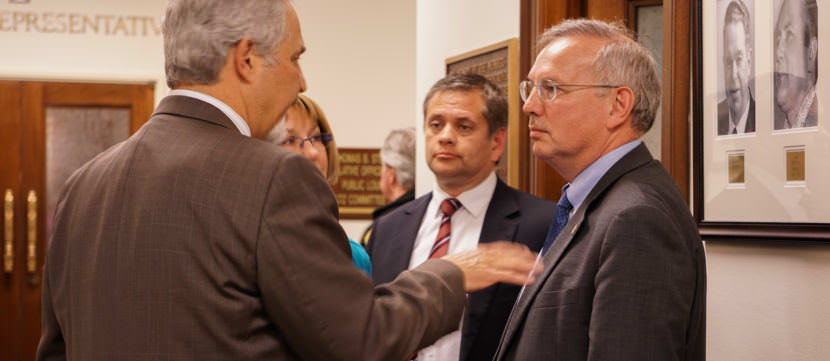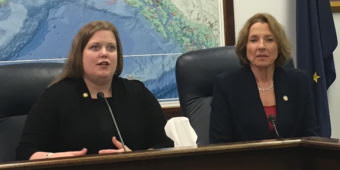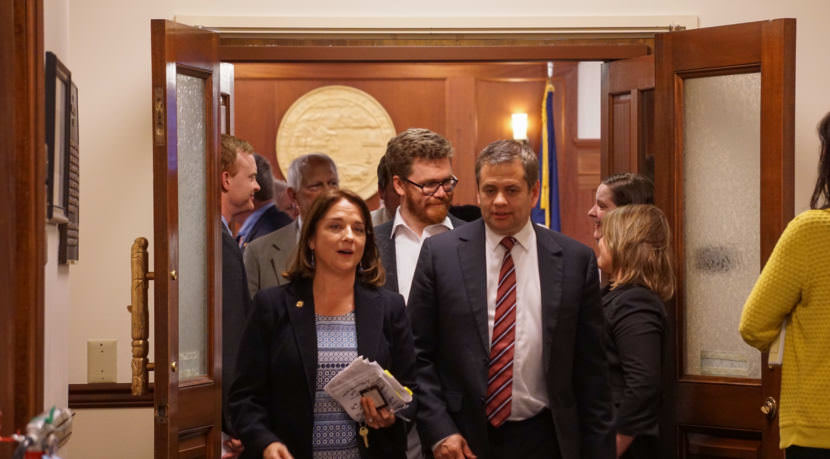
State government would no longer provide tax credits that can be traded for cash to oil and gas companies under a bill the Legislature passed Saturday.
Instead, companies would be able to reduce the taxes they pay in the future, based on the amount they spend to develop fields.
The Senate passed House Bill 111 with a vote of 18 to 0, while the House passed it 33 to 6.
Anchorage Republican Sen. Cathy Giessel said companies would weigh their investments due to the loss of tax credits. She said it’s lawmakers’ intention that the bill doesn’t cause further job losses.

“Make no mistake about it, this bill is a tax increase,” she said.
Lawmakers took until the final two hours of the second special session to pass an agreement.
State analysts estimate the bill would save the state $1.34 billion over the next decade. By then, oil companies are forecast to spend roughly $1.5 billion they’ll be able to use to lower future taxes.
Anchorage Democratic Rep. Geran Tarr said the bill shows the Legislature is capable of reaching compromise on difficult solutions for the state’s future.
“If you didn’t get everything you wanted in this bill, that’s not an exclusive club,” Tarr said. “It went farther than a lot of people wanted and not as far as some others did. So it truly does represent a compromise.”
Negotiators worked into Saturday night to work out a compromise. A key provision means that if companies don’t begin production within 10 years of beginning to spend on fields, they would lose some of the value of future tax reductions.
The Alaska Oil and Gas Association said in a tweet that the bill will have a negative impact on investment in the state.
Make no mistake: HB 111 will have a negative impact on investment in Alaska. 7th tax change in 12 years. #akleg
— AOGA (@AOGA) July 16, 2017
Gov. Bill Walker praised legislators for the agreement. He said they’ve told him they’ll reach an agreement on a capital budget by July 31. The Senate voted to return for a third special session, but the House didn’t take a similar vote on Saturday.

